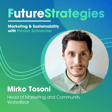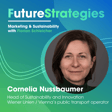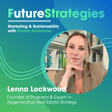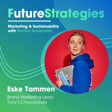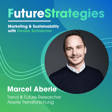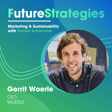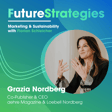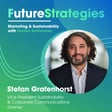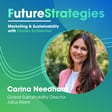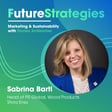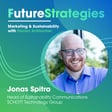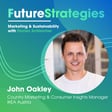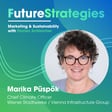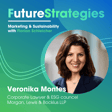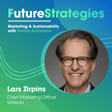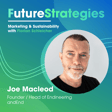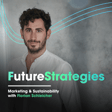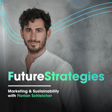
🦕 Excitement in Sustainability - Kiki Van Son from Plant Baby about marketing for a young foodbrand
Kiki Van Son is the Chief Brand Officer at PlantBaby Co, a direct-to-consumer nutrition startup designing convenient, naturally nutrient rich and minimally processed plant based foods and beverages for families. She started her career in advertising at the well known agency McCann New York, where she first made the connection between attention-harvesting-technologies and the decline of our privacy, democratic functioning, and wellbeing.
Kiki earned her M.S. in Business for Social Impact and Sustainability, researched the social media ad revenue model’s impact on mental health, worked at the Center for Humane Technology during the COVID-19 pandemic, contributed to the momentum from “The Social Dilemma,” and is a founding member of The Conscious Marketing Movement.
About the FutureStrategies podcast and your host:
I’m Florian Schleicher, a marketing strategist. I help brands gain clarity, spark momentum, and turn strategy into something that actually moves people. In 2022, I started my marketing studio FUTURESTRATEGIES. to do exactly that. I currently work with corporate clients from 11 countries.
If you want more, check out my FutureStrategies newsletter – weekly inspiration on marketing, strategy and sustainability.
And if something’s blocking your brand from doing its best work, let’s talk.
